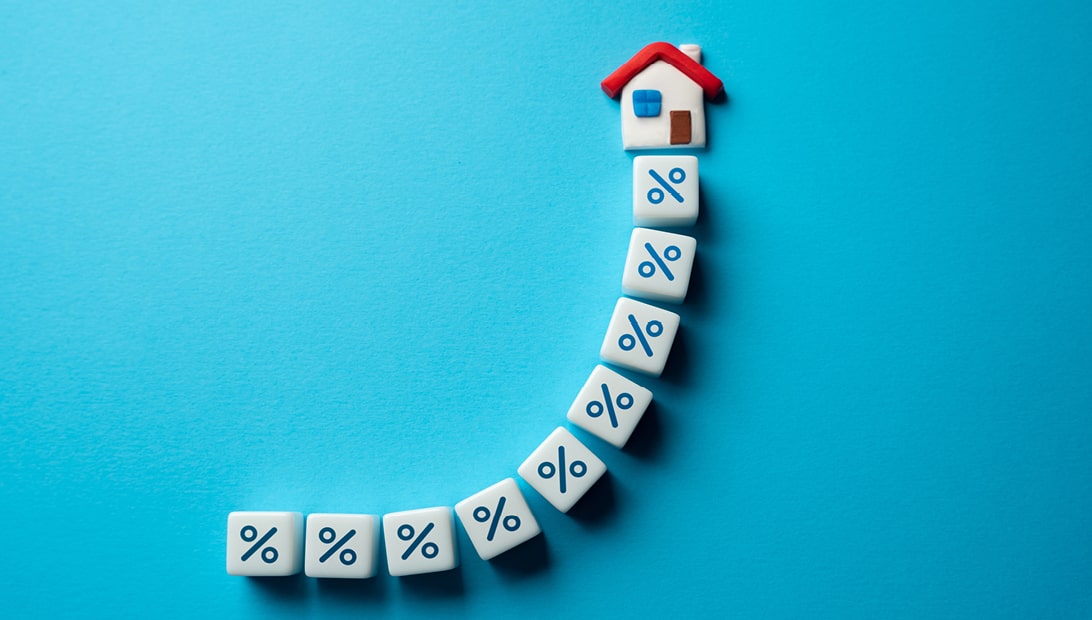
7 Minutes on Markets - Q2 2025 Market Update
In this edition of 7 Minutes on Markets, Head of Equity Strategy Ben Kumar and Investment Manager Sam Hannon look at the latest market events and movements across the globe.
Ben Kumar: Hello everyone, and welcome to 7 Minutes on Markets. I'm Ben Kumar, Head of Equity Strategy, and with me is…
Sam Hannon: Sam Hannon, Investment Manager.
Ben: Another very interesting quarter. I mean, I feel like I say that every quarter, but if at the end of March, you know you’d just gone away for three months, you'd have come back and seen equity markets about where they were, bond markets about where they were, maybe the dollar a little bit weaker. But you'd have missed all the fun because I mean, it was wild, right? And it pretty much started two days after the quarter started, Sam, April 2, Rose Garden at the White House, Liberation Day. Boom.
Sam: Yeah, it's been one of the wildest three months of, I think, my career in particular outside of Covid, where we've seen things whipsaw between complete calm and complete chaos and it's largely been driven by a shift in trade policy and a view on global economic growth looking forward. And a little bit as you mentioned, Ben, in that US weakness, are we starting to see that exceptional US start to fade away as a result of this constantly or consistently changing trade policy view that's been led mostly by politics rather than by economics.
Ben: And if you kind of take you back to the start of April, the Vix, the fear index, spiked up to levels not seen since Covid, Sam, but it's gradually cascaded back down to a more even rate. I like to think of the Vix as a bit like the market's heartbeat. It should stay at a nice steady level, but occasionally it gets worked up about something. And it got really worked up in April. But now we're back to normal.
The thing I think has happened is a little bit of The Boy Who Cried Wolf with Donald Trump. You know, he's being called Taco Trump at the moment. Trump always chickens out that stands for. And every trade announcement, and indeed some of the domestic announcements, has been big and grand and then followed by something that's a little bit of a damp squib. So at the moment, investors are saying, well, look, the headlines are going to be loud, there's going to be fire and fury, but not much is going to change. However, while that has been true, I'm constantly reminded that in The Boy Who Cried Wolf, eventually the wolf does come, right? And so anyone who says, uh, Trump's going to do nothing… you just want to be a little bit careful on that. Doesn't mean you have to panic, doesn't mean you need to run for the hills. But there is always a chance that something sticks that maybe isn't so palatable to the market, or at least to the US market because… I'm going to tee you up here, Sam, outside of the US, it's looked pretty good.
Sam: Yeah, and I like The Boy Who Cried Wolf phrase because it's kind of that running for the hills element where investors just don't like uncertainty. We know that what moves markets is uncertainty. People like to know what's going to happen moving forward, be it company earnings, government policy, it's really key for what investors and how investors behave. And if you think about the US, it's been that safe haven really both in equity markets, fixed income and in currency terms. But now you're starting to see that uncertainty creep into the US market. Investors are now looking elsewhere for that certainty and we've seen some great performance in the FTSE, in Europe. And you’re starting to see that certainty creep back in where, for a long, long time, the UK and Europe were really unloved areas to invest in and really unloved markets. But that element and we spoke about it last time of reindustrialization in Europe, the certainty a little bit on the political side in the UK just allows it, allows it to be a landscape for investors now to say, well, actually Europe and UK are actually nice places to invest.
Ben: And it's all a bit relative, right? So it might well feel to lots of people in the UK that our political certainty still isn't particularly great, but compared to the US, actually it is. The same in Europe, you know, lots of the domestic policy there on re-industrialisation, on defence is certain. You don't go out and raise hundreds of billions of euros in a defence fund. You're not going to row back on that. You've got that money and you need to spend it. So the relative attractiveness of other areas of the world is starting to come through. It doesn't mean the US is broken. It doesn't mean that there aren't great companies in the US equity market. It just means investors are starting to look elsewhere. And there are some hidden areas as well, all these places we've forgotten about like Japan. Japan is a market that's gone nowhere for 30 odd years, but you're starting to see some change there. The Japanese government is well aware that, with an ageing population, with not much in the way of immigration, it needs to get its productivity up, so the labour force, you know, much far fewer people need to do a load more work – and it's launching policies to make that happen. It wants corporate takeovers, it wants mergers and acquisitions because those will, in theory, and mostly in reality, make people more efficient. You put two old stale companies together and then you try and work out where you can find efficiencies, makes people more productive. So some of the things going on in Japan are really exciting. Similarly, there are opportunities in emerging markets.
Whether that's the bond market or the equity market, all of which benefit from a weaker dollar. So for us at 7IM, diversified portfolios which we have been banging on about for ages and ages and ages, without very much effort are suddenly delivering this year. Not having 70% of your assets, of your equities in the US and in the dollars that come along with it suddenly looks like a really sensible idea. We've been positioned this way for many, many years and now the market's moving towards us as it does from time to time.
Sam: Yeah, I think Japan's a great example really, because if you think long enough back to the 80s, the Japanese market was a lot like the US where it was the dominant force. It made up around 50% of the global equity market. It was the only place to invest in and it was the only place to be. It was that revolutionary industry cycle, it was the forefront of technology.
Ben: And if you didn’t own Japan, why wouldn't you?
Sam: And it was only when we started to see the US come online when it came to their own developments of technology, when South Korea starts to get involved with the tech industry or their car manufacturing. Taiwan on the semiconductor side… that we started to see that dominance of Japan start to kind of fall away – not automatically and not overnight. It's a gradual kind of plod through…
Ben: A little bit more competition from other places…
Sam: But now we're starting to see similarities within the US and particularly as we start to see that rotation away from that concentration and that benefit of diversification where actually the broader market has been, it's been rewarded. That now allows the kind of the next winner to come to the forefront.
Ben: Yeah. And I guess we'll leave you with this, which is that at the moment it's foreign investors, non-US investors taking their money from the US and putting it elsewhere. The big kicker could still be to come, which is when US investors start to look outside their borders. We're nowhere near that happening yet, but if it does, could be another boost for diversification over the long run. That's about it from us. I think we're under the seven-minute mark-ish, so we will see you next quarter. Thank you very much.
Sam: Thanks.
More from 7IM





